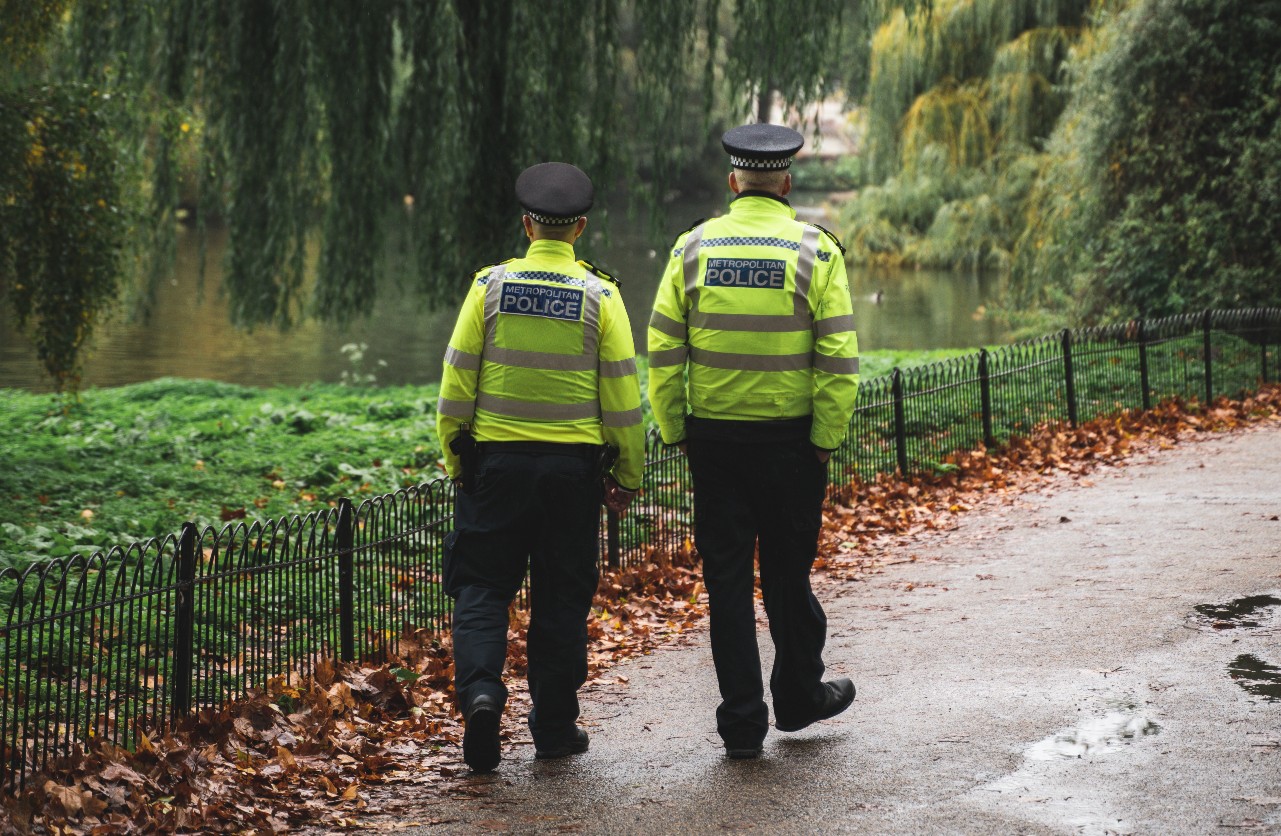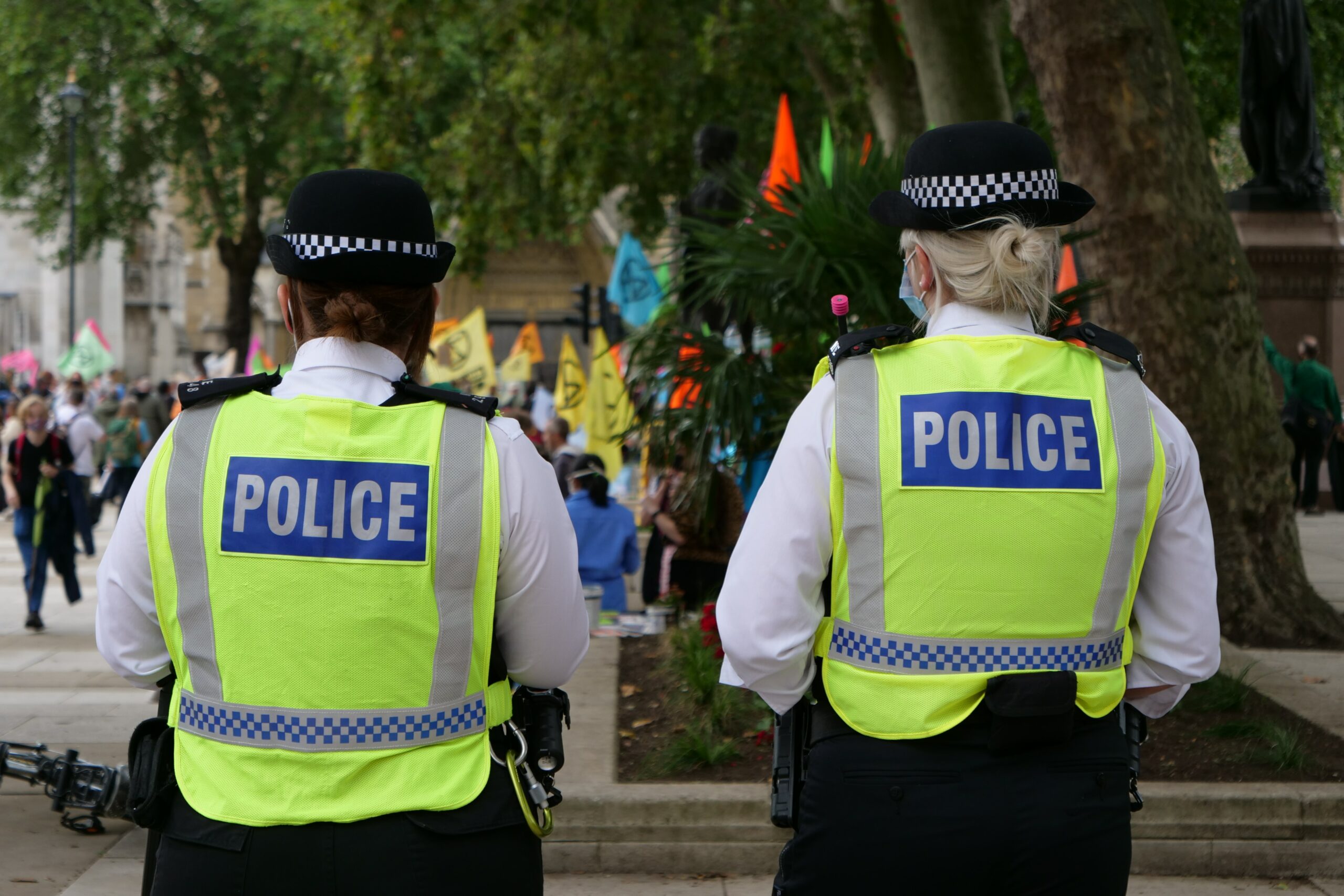What is a police caution – and how long do they last?
A police caution can be confusing and raise a whirlwind of questions. What exactly is a police caution? What does it mean for you? If the police have cautioned you, it’s natural to have questions.
This comprehensive guide, written by police caution expert Latoya Atkinson, aims to untangle the complexities of police cautions in the UK and provide clear and informative answers to all your questions, empowering you to understand the process and navigate it with confidence.
If you’re interested in one particular section, use the links below to navigate straight to it:
- What is a caution from the police?
- Types of police cautions
- When are police cautions given?
- Is a caution a conviction?
- How do you know if you have a police caution?
- Can I refuse a police caution?
- What does not accepting a police caution mean for you?
- Should I accept my police caution?
- How long does a police caution last?
- How to get a police caution removed
- How can we help
Ready to get clear answers about your police caution? Contact our team today.
What is a caution from the police?
There is a common misconception that police cautions are merely a “slap on the wrist” or warning, but that’s not the case. A police caution is a legal sanction for a criminal offence. It is an admission that you have committed a criminal offence.
Whilst less serious than a conviction, it is a criminal record and can be disclosed on Disclosure and Barring Service (DBS) certificates and police certificates.
Types of police cautions
There are two main types of cautions: simple and conditional.
- Simple cautions are for minor offences and become “spent” immediately. This means they are not disclosed on basic DBS checks.
- Conditional cautions involve additional conditions like compensation payments or rehabilitation programmes. These cautions become spent after three months of fulfilling those conditions.
There are also youth cautions and youth conditional cautions, which are similar to adult cautions but have slightly different procedural requirements. We’ll talk about these in more detail later.
When are police cautions given?
Cautions are often used for the more minor crimes, particularly where you are a first-time offender but it’s up to the police to decide whether to offer one or refer the case to the Crown Prosecution Service (CPS). To be eligible for a caution though, certain criteria must be met. Most significant is that the police can only give you a caution if you admit that you’re guilty.
For more serious crimes, the police are more likely to pursue a formal charge.
When might I be given a conditional caution?
The circumstances around being given a conditional caution are the same as those for a simple caution, however, a conditional caution might be chosen over a simple caution if the police believe conditions could:
- repay to the victim or community;
- remove the individual from the area;
- help to prevent future offending behaviour; or
- provide an appropriate fine (ranging from £50 to £150).
As part of the process, the police should factor in the victim’s input, community considerations, and the likely impact of the conditions. These conditions come with a timeframe, typically up to 16 weeks, in which these conditions must be completed. You could be charged with a crime if you don’t stick to the conditions.
Is a caution a conviction?
No, a caution is not a conviction. Only a court of law can convict you of a crime. However, a caution is a criminal record, much like a conviction and will be retained on the PNC for 100 years.
All cautions, reprimands and warnings retained on the PNC are potentially disclosable on a Disclosure and Barring Service (DBS) depending on the circumstances.
Most adult cautions become protected, or “filtered”, after six years and will not automatically appear on a standard or enhanced DBS. However, cautions for offences that are classed as “specified”, are never protected, and will always be disclosed on an enhanced and standard check. This means a caution could potentially impact your employment or volunteering opportunities.
While certain disclosure rules may limit when a caution shows up on a DBS check, the caution itself remains on the PNC record unless deleted.
How do you know if you have a police caution?
Usually, this will be fairly obvious. The police will inform you directly if you are being cautioned and typically, you will need to sign a caution document. This ensures everything is documented accurately. When cautioned, you should receive a clear explanation of the offence and the details of the caution.
However, if time has passed, or you’re just unsure, you can request a Subject Access Request (SAR) to ACRO for a copy of your PNC. This is a formal request to see what information the police hold about you on the national database, including any cautions recorded.
Will I lose my job if I get a police caution?
If you do need to disclose the caution to your employer and have worked there for some time, it’s highly unlikely that you will be dismissed from your job, unless the caution you have received is relevant to the work you do. Ultimately, it is for your employer to decide.
It is also against the law for an employer, university or college to refuse you a role because you’ve got a spent conviction or caution unless, again, it makes you unsuitable for the role.
Can I refuse a police caution?
Yes, you can absolutely refuse a police caution. You are entitled to do so.
The police should only offer you a caution if they have enough evidence to convict you in court and if you’ve already admitted to the crime. So, if for example, you believe the police don’t have sufficient evidence, you can refuse it. You have the right to consult a lawyer before choosing whether to accept or refuse the caution.
You may also choose to refuse a police caution if there are points you want to bring up in court. For example, you acted in self-defence or if you have mitigating circumstances. Your lawyer may advise you to bring these up in court.
What does not accepting a police caution mean for you?
Not accepting a police caution can go one of two ways. If you don’t accept, the police will need to decide whether to let you go or to pass your case to the Crown Prosecution Service (CPS) who will decide whether to prosecute you. The outcome can then swing in either direction: you may be acquitted, maintaining a clean record, or you could face conviction, resulting in a more severe mark on your criminal record compared to a caution.
If you have a criminal conviction on your record, it will show up even on basic DBS checks and you would be required to disclose your unspent convictions when asked by potential employers. A conviction like this may also severely interfere with your ability to study, travel, and purchase insurance.
Should I accept my police caution?
Accepting a police caution means admitting that you’re guilty of the offence and agreeing to the consequences outlined by the police officer. Here’s a breakdown of some key points:
Does a police caution go on your record?
Yes, a police caution does go on record. Once you accept a caution it will be recorded on the police national computer (PNC) so you will have a criminal record.
Can you still get insurance?
Cautions are automatically spent under the Rehabilitation of Offenders Act (ROA) so disclosure will never be required for the purpose of insurance.
Can you still get the job you want?
As we mentioned above, cautions don’t show up on basic Disclosure and Barring Service (DBS) checks so if you apply for a job covered by the ROA you won’t need to disclose your caution. If you are asked in a job interview whether you have any criminal convictions, you can also answer no because a caution is not a conviction.
If you apply for a job that requires a standard or enhanced DBS check (such as teaching or police work) then your caution will be disclosed on these checks unless it is eligible for filtering. An offence eligible for filtering means although it won’t expire from your record it won’t show up even on enhanced checks. For a full list of eligible offences see the gov.uk website.
What if you’re involved in another case and you have a caution?
If you are subsequently involved in another case the court will be made aware of your previous caution and it could even be used as evidence of bad character.
Will it affect your application for a visa?
Police cautions can affect your ability to get a visa depending on the type of visa you apply for and the offence the caution was issued for.
Ultimately, It’s highly recommended to seek legal advice from a solicitor before making a decision on whether to accept a police caution. A solicitor can assess your situation, explain the potential consequences of both accepting and rejecting the caution and advise you on the best course of action for your specific circumstances.
How long does a police caution last?
There is a common misconception that a police caution gets removed after five years due to previous rules related to the retention of cautions. The retention and disclosure rules have changed many times over the years. As mentioned above, a police caution is retained on the PNC for 100 years unless deleted.
The retention of cautions on your PNC record is separate from the disclosure rules for DBS checks. Let’s delve into how long cautions typically stay on record and how they are disclosed for adults and youths, as there are some key differences between the two:
Adults (18 and over)
For adults, simple cautions are the most forgiving. Depending on the offence, they disappear from DBS checks after six years, becoming “filtered” and no longer disclosed.
It’s important to remember that employers are generally restricted from considering spent cautions for most jobs, with the exception of serious offences.
Youths (18 and under)
Youths have a different set of rules. Standard cautions, warnings, and reprimands are the most fortunate scenario as they won’t appear on DBS checks at all.
Youth conditional cautions, however, require a bit more waiting. They take three months to become “spent” after meeting the conditions, and during this time they will be visible on standard and enhanced DBS checks. Once “spent” they, too, will not automatically be disclosed.
How to get a police caution removed
We’re often asked how to get a police caution removed. Police cautions will never automatically be deleted however, it is possible to apply to have a caution and its trace elements deleted from the PNC so that it will not appear anywhere in the future.
This can only be done if there are sufficient grounds to demonstrate your case as being ‘exceptional’. Whether this test is met is entirely within the discretion of the police, so any application must persuade them with good reasons, to exercise that discretion in your favour.
How can we help
At Richard Nelson LLP, we specialise in advising on and drafting applications to the police to delete any information they may hold about you either on the national (PNC) or local (PND) databases (except convictions which cannot be removed). Once deleted, that information will no longer appear on any DBS Certificate or Police Certificate. Our specialist caution and DBS lawyers can provide expert legal advice.
We have handled hundreds of cases and covered all of the normal offences which result in caution. However, every case is different and unique to the specific circumstances. We go through every detail with you very carefully so we understand your case and can then properly draft your grounds for deletion to submit to the relevant police force.
If you have been cautioned by the police and are unsure whether to accept it or simply have questions about the process, our specialist solicitors can provide expert legal advice.
Learn more about our police caution removal service or get in touch for a consultation with the experts at Richard Nelson LLP today.



